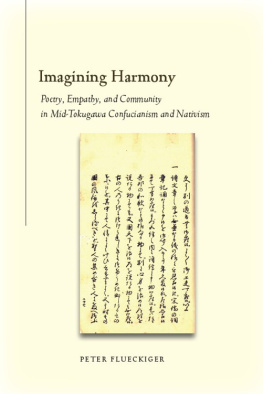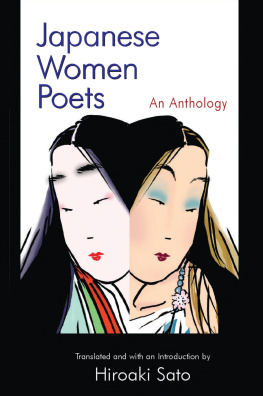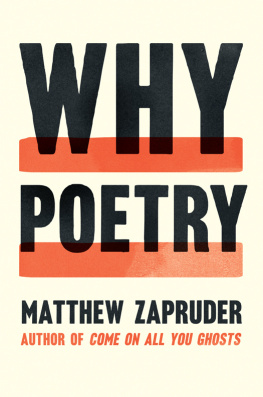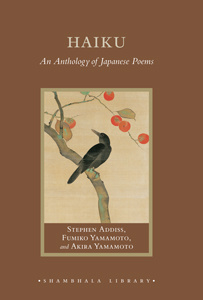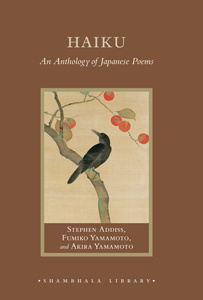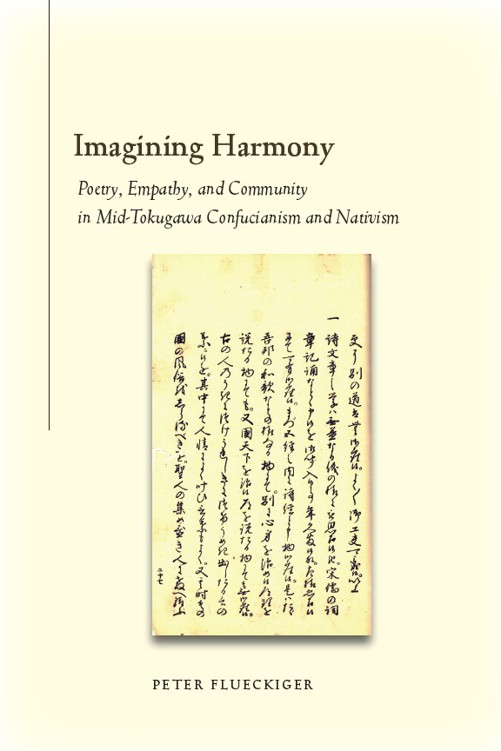poetry, empathy, and community in mid-tokugawa confucianism and nativism
Peter Flueckiger
stanford university press stanford, california
Stanford University Press Stanford, California
2011 by the Board of Trustees of the Leland Stanford Junior University. All rights reserved.
No part of this book may be reproduced or transmitted in any form or by any means, elec tronic or mechanical, including photocopying and recording, or in any information storage or retrieval system without the prior written permission of Stanford University Press.
Printed in the United States of America on acid-free, archival-quality paper
Library of Congress Cataloging-in-Publication Data
Flueckiger, Peter, 1970
Imagining harmony : poetry, empathy, and community in mid-Tokugawa Confucianism and nativism / Peter Flueckiger.
p. cm . Includes bibliographical references and index . isbn 978 - - 8047 - 6157 - (cloth : alk. paper )
. Japanese poetry th centuryHistory and criticismTheory, etc. . Literature and societyJapanHistory th century. . Nativism in literature. . Culture in literature.
. Philosophy, Confucian. I. Title. pl733 . . f58 2011 895 . ' 13209355 dc
2010013338
Typeset by Bruce Lundquist in / Adobe Garamond
In memory of my father
Acknowledgment s
IwouldliketothankfirstofallHaruoShiraneatColumbia,whoencour agedmetopursuepremodernJapaneseliterarystudies,andguidedthis projectateverystage.IalsoreceivedinvaluableguidancefromKurozumi MakotoattheUniversityofTokyo,whosharedhisbroadknowledgeof OgySoraiandTokugawaintellectualhistorythroughhisseminarsand countlesspersonalconversations.MyunderstandingofSoraiisdeeplyin debted aswelltoHiraishiNaoakisrigorousseminarson Bend and Benmei attheUniversityofTokyo.SeminarswithNagashimaHiroaki,attheUni ve rsityofTokyo,andSuzukiJun,attheNationalInstituteforJapanese Literature,contributedtomyknowledgeofeighteenth-centurywakaand literaticulture.IhavelearnedmuchaboutDazaiShundaifrommydiscus sionswithKojimaYasunoriofInternationalChristianUniversity.
TheperspectivesonmodernJapanthatIhavegainedfromPaulAnderer, KarataniKjin,andTomiSuzukihaveinformedmyinterpretationsofhow TokugawaliteratureandthoughtrelatetovariousmodernJapanesepoliti cal ide ologiesandconceptionsofculturalidentity.Iowemuchaswellto MartinKern,PaulRouzer,andWeiShang,whoprovidedthetrainingin ClassicalChineselanguageandliteraturethatmadeitpossibleformeto pursueresearchonChineseliterarythoughtandTokugawaConfucianism.
SinceIcametoPomonaCollegein 2003 , mycolleaguesintheDepart ment ofAsianLanguagesandLiteraturesandtheAsianStudiesProgram haveprovidedasupportiveenvironmentformydevelopmentasateacher andscholar.IamparticularlyindebtedtoSamYamashitafornotonlybeing avaluablementorandcolleague,butalsosharinghisexpertiseonOgy SoraiandTokugawaintellectualhistory,andpainstakinglyreviewingmy entiremanuscript.
acknowledgments
ThecommentsfromthereadersforStanfordUniversityPresswerevery helpfultomeinrevisingmymanuscript.IwouldalsoliketothankCarolyn Brown,StacyWagner,JessicaWalsh,andtheotherstaffatStanfordwho steeredmethroughthepublicationprocess.EileenCheng,AriLevine,Kiri Paramore,andMorganPitelkaallreviewedportionsofthemanuscriptat variousstages,andIamgratefultothemfortheircandidfeedbackandsug gestionsforimprovement.
Portions ofChapters and appearedinThe Shijing inTokugawa
Anc ientLearning,in Mon umenta Serica ( ).PortionsofChap ter appearedinReflectionsontheMeaningofOurCountry:Kamono
Mabuchis Kokuik , in Monumenta Nipponica ,no. (Autumn 2008 ). Iamgratefultotheeditorsfortheirpermissiontousethismaterial.
ResearchonthisprojectinJapanfrom 2000 to 2002 wasfundedbya FulbrightIIEFellowship.Inthesummerof 2004 Iwasabletoconductfur therresearchinJapanthankstoagrantIreceivedthroughPomonaCollege fundedbytheFreemanFoundation.AJapanFoundationShort-TermRe searchFellowshipmadeitpossibleformetoreturntoJapanagaintowork onthisprojectinthesummerof 2006 .
Introductio n
Adistinctivefeatureofmucheighteenth-centuryJapanesephilosophical andpoliticaldiscourseistheprominentplaceitgavetopoetryinimagin ing theidealsociety.TheoriesaboutpoetryhadlongbeenusedinJapanto talkaboutissuesbeyondthecompositionofpoetryitself,butthistendency becameespeciallypronouncedintheeighteenthcentury.Manywritersof thistimeviewedemotionalityastheessentialtruthofhumannature,and claimedthatpoetryhadauniquecapacitytoexpressandcommunicate authenticemotions.Theyalsovaluedpoetryasavehicleforaccessingthe languagesandculturesofthepast.Theylookedtoidealizedvisionsofan cientChinaorJapanasthesourceofaWay( michi ) thatcouldbeusedto giveordertosociety,andinvestigatedthesehistoricalculturesthroughthe philologicalanalysisofancienttexts.Theysawpoetry,specificallyclassical genresineitherChineseorJapanese,asthepurestformofancientlanguage, makingthestudyandcompositionofsuchpoetryacrucialcomponentof philologicaltraining.Theyvaluedsuchlanguagenotonlyasascholarly tool,butalsoforhowitembodiedaestheticqualitiesandculturalformsthat couldputpeopleofthepresentintouchwithnormativelycorrectcultures fromthepast.Theiremphasisonpoetryasawaytobecomeimmersedin
ancientlanguagesandculturesgaverisetowhatcouldbecalledaneoclassi calapproachtocomposition,inwhichtheycomposedpoetrybyimitating canonicalmodelsfromthepast.
Thisstudyinvestigateshoweighteenth-centuryJapanesewriters,by describingpoetryasbothavehicleforemotionalexpressionandasource oflinguisticandculturalknowledge,integratedpoetryintotheirvisionsof politicalcommunity.ItwasaboveallinthephilosophyoftheConfucian scholarOgySorai( 1666 1728 ) thataninterestinhistoricalcultureswas combinedwithanemphasisonemotionalityinthisway.Sorai,thesubject ofChapters and ,arguedthatConfucianismshouldbeunderstoodasa philosophyofrulership,ratherthanameansforpersonalmoralcultivation, andhenotonlygeneratednovelandinfluentialinterpretationsoftheCon fucianclassics,butalsoformulateddetailedproposalsforpoliticalreform. HesawthestudyandcompositionofclassicalChinesepoetrybythegov erning eliteaskeytothepracticeoftheConfucianWay,andhisviewswere inheritedandmodifiedbyhisdisciples,whomIdiscussinChapter ,such asDazaiShundai( 1680 1747 ), whofurtherdevelopedhisideasonConfu ciangovernment,andHattoriNankaku( 1683 1759 ), whowasmostfamous asapoet.TheSoraischoolsawChinaasthesourceofcultureandciviliza tion,andtheywerecriticizedintheeighteenthcenturybyscholars,often referredtoinEnglish-languagescholarshipasnativists,whoarguedforthe superiorityofancientJapanesecultureandsawChinaashavingcorrupted Japansoriginalvirtues. Thetwomostprominenteighteenth-centurynativ istswereKamonoMabuchi( 1697 1769 ),whomIwriteaboutinChapter , andMotooriNorinaga( 1730 1801 ), thesubjectofChapter ,bothofwhom sharedwithSoraiabeliefintheimportanceofpoetryinachievingaharmo nioussociety,butarguedthatonlyJapanesepoetrycouldplaysucharole.

